


.
.
.
.
.
.
.
At this level, screaming is a constant.
Solo deposits are all the same: haul down an underperforming drone, throw them in a processing room, seal the door and listen to it eat. The bulkheads muffle sound, but with how close you're required to stand some of the spectacle has to slip through. On the good days, you make conversation. It makes the noise easier to ignore, and your company isn't the worst.
You're alone now, though. Bad day. You stand in a small, square hallway that stretches further than your vision carries. The lights only work in a ten foot radius around you. The walls are damp, cracked concrete that shifts if you stare too long, and the smell of mold and old metal never quite settles on your nose. There's a buzzing behind your eye from the depth you're at. You've always been predisposed to migraines, but in a place like this there isn't much to do beyond toughing it out.
It's warm below the surface. Too warm. You're the only one who seems to notice.
There shouldn't. Something in your head clicks after thirty seconds of distant commotion. This isn't a solo deposit. There shouldn't be screaming. This is maintenance work— real maintenance work, not the shit they dress up in fancy language to make murder sound reasonable. This is three well-trained drones to fix whatever's going wrong, and two EIRs to keep structural integrity inside and out. This is a mission you can't afford to fuck up, manned by five professionals.
And them. Fuck, they're a creepy little thing. Dead-eyed, pale, dragging their feet like a corpse that learned to walk.
Maybe they are. That still doesn't explain their survival— it's never been a picky eater; a body's a body. You stopped counting how many times it spat them back out after their fourth visit. You stopped caring after their second.
No, that's not right. You're a good person. You have a good head on your shoulders; you have family and life outside of all of this. You're better than this. You're better than it.
You aren't sure why upper management asked you to bring them along this time. They can't do anything; they were never formally trained in the way workers are meant to be. All they'll do is stand around and act as a
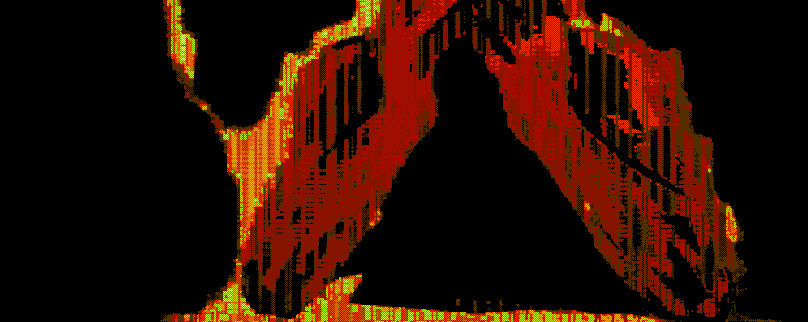
When you still did not reply, he added,
HIM: "You arent mad at me, are you?"
YOU: "No. You're good."
There is, though. You wonder if the months-old water in the pot is finally boiling over.
You wonder if you'll open the door and find that sack of skin and bones ripped apart.
That's right. You need to act. That's why you're here.
Your hand connects with the control panel wired into every door beneath the surface. The connector breaks through the fabric on your palm, embedding deep into your skin and flooding your veins with fire. Your bodily functions kick into overdrive. Muscle connects to muscle— synapses form and fire— you flex and twitch through no effort of your own. If not for your other hand resting on the wall and bearing all of your weight, you would be face first on the floor, writhing.
Your breathing comes fast; a fist forms in your chest.
Beneath your skin, you can feel your restructured organs begin to squirm. Worms in compost, the boys like to say. Dots swim behind your vision and the buzzing behind your eyes builds up until you're certain at least one is going to pop. The blood vessels certainly do— watery red leaks from your nose, tear ducts, mouth, ears— but your helmet blocks any chance of wiping yourself clean.
Another convulsion. Your coughs are rib-cracking and rough, your connection to the world waxes and wanes. You grit your teeth with enough force that the enamel cracks and scabs over in a split second. You think you aren't going to survive this. You think this every time.
Your heartrate synchronizes with that of the station. A building-wide neural network of cables and nerve-endings shotguns into your nervous system, raw, as your body struggles not to unravel from its impact.

The human mind wasn't built to process this much information at once. It takes months of conditioning to get to this point, and you've still seen some of the toughest bastards overload and fry their brains black. They spend a week in a padded cell, still hooked up, until their minds pull back into their bodies. If you're lucky, most things come back.
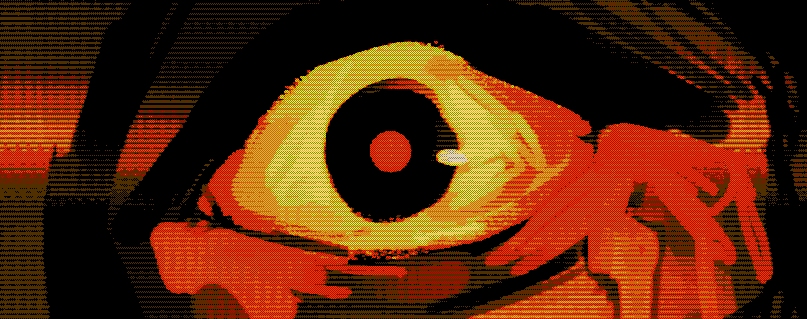
You are Gabriel Angelo Vazquez. ‘Angelo’ if you’re family, ‘Gabe’ to everyone else. You have two uncles named Gabriel and a cousin named Gabriella. There are only so many ways one can mangle a name.
At eighteen, you enlisted. College was never an option; you didn’t have the brain for learning. Working was not an option; you lacked the drive to slave away for the rest of your life. So you shipped yourself off at the behest of your parents, because they said it would teach you the discipline they had failed to. You suppose they were right.
It's an alright gig. Your bed and board is free, and luxuries on the station are cheap compared to everywhere else in the world. Couple that with the pay— more in a year than you've ever seen— and you could really make something for yourself here.
Within one of seven high-priority research facilities. You drew the short stick and ended up a million miles away from home, in a frozen-over wasteland that spends half the year in pitch black. Currently, you're strewn about on the floor of your barracks like a frat boy after a weekend bender; you're sitting pretty at the half-way point between the waking world and death.
Terrible choice. Every souped-up muscle in your body protests the idea of motion. Like an ungreased wheel, your dehydration makes even the most basic shift an Olympic feat. You cannot move, you decide. You will waste away and die here. They can scrape your remains off the floor like they do to the other unfortunates.
Your eyes are too blurry to properly focus, but even blind you are well acquainted with this room:
Twelve beds jammed in a small concrete room smelling of mildew. Low-lit, claustrophobic, damp. The vents are caked in dust because nobody wants to clean. No windows— you’re ten feet underground, how would there be windows?— but there is
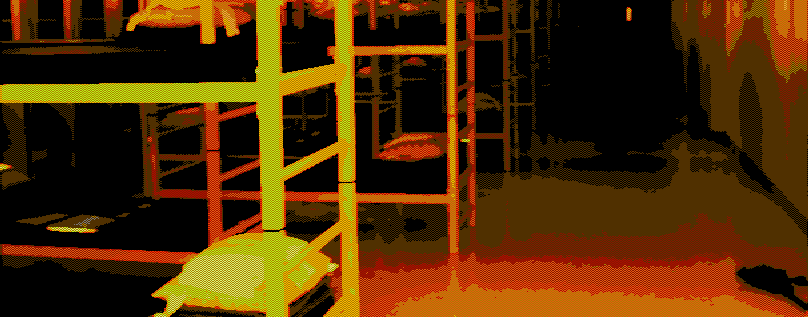
THE CLOCK IN THE CORNER: You're late!
YOU: By an hour.
THE CLOCK IN THE CORNER: I'm three hours off, did you forget? It's been like that since before you got here. Good thing you aren't too shabby at math, eh? So how bad are we looking?
YOU: Four hours past wake up.
THE CLOCK IN THE CORNER: Yeugh. Which means?
YOU: Four infraction tallies.
YOU: But I…
THE CLOCK IN THE CORNER: Please. You aren't related. You barely even know the guy— in the grand scheme of things. You have real friends back home, you have a family. Probably a girlfriend, too, with how much of a looker you are.
THE CLOCK IN THE CORNER: Besides, you should have prepared for this. Discharge is a month away. Get over yourself.
THE CLOCK IN THE CORNER: Always playing hero... hey, buddy? Nobody asked you to do that.
YOU: She did.
THE CLOCK IN THE CORNER: Oh, grow up and stop making excuses. You're better than this. Get up before your tallies turn to five.
Your face peels from the floor like sweaty skin on warm leather. You rise, doing your utmost to ignore the pins and needles in your limbs. When the world loses its viscosity, you put a hand on your knee and force yourself to stand.
You need real food, you think. Water, too. Something that isn’t preprocessed vitamin slop and malted grains.
You're missing something.
It's about your body. It's about your body and...
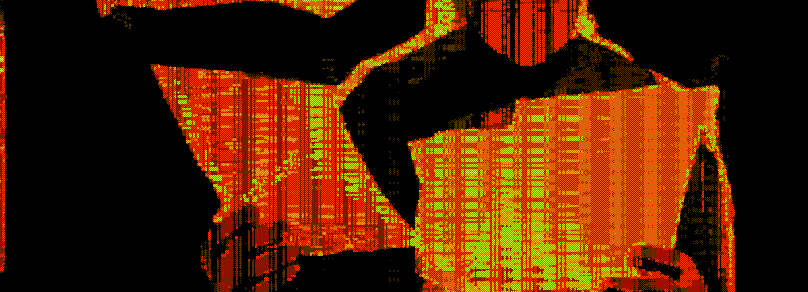
THE PILLS HIDDEN IN YOUR BEDSHEET: One: you must take this medication at the same time, every day. Failing to do this greatly reduces the effectiveness, and greatly increases your chance of premature development.
YOU: I've already failed, then.
THE PILLS HIDDEN IN YOUR BEDSHEET: So it seems.
THE PILLS HIDDEN IN YOUR BEDSHEET: Two: you must take four tablets by mouth, and on an empty stomach. Naseua is normal. A burning sensation in your gut is normal. The destruction of your stomach lining means the medication is working.
THE PILLS IN YOUR BEDSHEET: Three: Take no more and no less than what you are prescribed. Your body has its limits, changed though it may be. Do not try to find them.

YOUR RIGHT ARM: I'm sorry that it hurts so much. You're too far along, unfortunately. Anasthesia won't have any effect, and novacaine shots only do so much.
YOUR RIGHT ARM: Struggle, if that makes you feel better. The restraints are there for a reason.
YOUR RIGHT ARM: It'll be over soon. You're in good hands.
You don't say that. Every two weeks you submit to being carved apart in the name of science, and you take it like you were made to be beneath the knife. You bite the fat of your cheek until tears off; you turn into a collection of flexed muscles and ignored pain receptors.
For that reason, you are a favorite among the surgeons. For that reason, you skipped your appointment.
Not without pushback; your own body betrays you. Even just a day late, you can feel the effects of a missed segmentation creeping up like a tangle of weeds.

◔ Your right arm, used to being severed at the shoulder and manually regrown, pulls against itself like a taut rope. The joints and tendons are unstable. Over the next few days, they will dissolve, mingle, then reharden into an immobile fusion of muscle and bone. Before that, you'll lose your fine motor skills.

◑ Your body packs a modest layer of fat. It used to be layers, but the combination of the treatments and your new diet robbed you of your padding. If you press two fingers into your abdomen, you can feel a collection of large lumps slowly distending outwards. Your organs. Leave them alone for too long, and the pressure will cause a rupture. Contamination from your split intestines will spill into the rest of your innards, but the sepsis you'll suffer still isn't enough to take something like you out.
You need to see her.
You don't say that. You're used to the schedule and the pain it brings. You were a mess your first week— had to be held down like a dog getting his meds— but time made the habit easier to swallow.
Now, you are an exceptionally well-behaved monster. Now, you have elected to discard your entire month's supply.
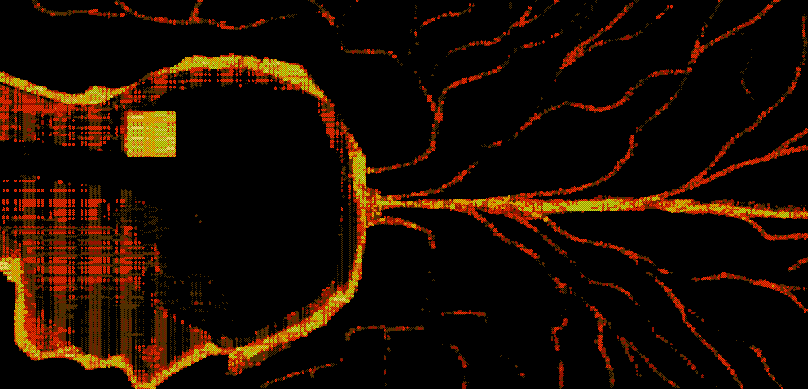
◔ Your better judgment goes first, but goes slowly. Its a steady build of grime that smudges your perceptions, blurs and blinds the world around you. The thread of connection is cut, and you are left wading through nothing while your body mimics the motions of being alive. Look down at your hands. Touch each digit to your face. Do you feel how cold they are? That can't really be you, can it?

◑ But you can only exist in nonexistence for so long. Your mind starts looking for ways back to yourself, and of those paths there is one most often traveled: Anger. Acts of thoughtless cruelty give a small rush, enough of a dopamine hit to ingrain in your psyche as good. Cruelty turns to outburts, turns to fighting, turns to murder. Attempted murder. Snapping your squadmates neck does nothing, really, because her neck will right itself before her brain stops working. You are one of a hundred hair-triggered supersoldiers, fully equipped with the knowledge that you cannot hurt each other in a way that matters. Hurting the fodder is the only way to feel anything.
You need to see her.
You know where to go. You stumble through the station hallways in a stupor, reeking and dazed from exhaustion and a failed bender. Your fellow soldiers largely ignore your unarmored form, and the doctors are too afraid to lay hands on you. You are a walking biohazard. The teflon-lined underclothes you are required to wear could very well not be enough to keep you safe for contact. So they scold you for your sloppy appearance, and you ignore them because you don't give a shit right now. Let them write you up, or report you for noncompliance. A reset sounds lovely right now.
In ten minutes, you arrive at your destination.
The office of Dr. Rhodes is your opposite: sterile, white, and well kept. The lights are kept pleasantly dim, and the smell of stale cigarette smoke is masked by chemicals and citrus. A few garishly printed posters litter the wall— one depicts a forest and mountain range, the other a picturesque beach, another a city skyline at dusk— but time has turned them faded. Her desk sits in the middle of everything, coated in a fine layer of dust and littered with stacks of unfinished paperwork.
Shockingly, she’s in-office, typing away at an outdated desktop that replaced the previous, almost-modern computer a few months ago. Something about a local network. Every time you've seen the doctor, she's either fighting it to work or complaining that it exists. Now, it appears she's reached a happy medium.
The doctor does not stop typing, but has the grace to give you a flicker of eye contact. She does not look surprised or particularly happy to see you.
DR. RHODES: "You overslept?"
DR. RHODES: "It’s fine. Everything’s in disarray. Sit down. I’ll be done in a minute."
One minute turns to five.
The doctor looks a world better than you. Her skin is smooth and practically glowing (who uses lotion in a place like this?) and her clothes— a light blouse beneath the uniform-standard coat all doctors are expected to wear— are impeccably neat. Her hair has been twisted into knots, then pulled back into a neat bun. A pair of expensive-looking earrings glint in the light. You wonder why she brought them to a place like this.
Five minutes turn to ten. Her hands are small and soft and perfectly manicured; the noise of their typing reminds you of rain drumming against a sheet metal roof.
Finally, a look of satisfaction washes over the doctor's face. Only then does she offer you her full and undivided attention, upon which her face fizzles into something grim.
DR. RHODES: "That’s more than some can say. Status?"
People like you don't open up. It's a habit reinforced by a lifetime of social conditioning— of being trained to shut the hell up and just take it as it is. She's seen this a hundred times before, and for that reason she won't even bother trying to break down those walls. You're only here for a year or three. There just isn't enough time.
So she turns to the physical. Stating what's wrong with your body is just stating medical facts, right? Take this chance to express yourself.
YOU: "Yes," you lie.
DR. RHODES: "Then no."
YOU: "Yes," you lie.
DR. RHODES: "Then no."
That seems like the correct question to ask. Your tone is flat and you do not care for the answer, but Dr. Rhodes appreciates the gesture. A weak smile pulls on her face.
DR. RHODES: "Well, I’m alive. Alive and busy."
DR. RHODES: "Speaking of which, you have a new assignment."
No is your gut reaction. I didn’t sign up for this. I don’t want to be anywhere near that basket case. I don’t want to risk dying like…
DR. RHODES: "A few weeks?" The doctor’s tone lacks confidence. She thumbs through a stack of documents instead of looking you in the eye. "Until everything settles down and we're comfortable enough to resume testing."
YOU: "And the duties include..."
DR. RHODES: "Bringing meals. Taking her to the showers in the morning. Escorting between facilities and evals if it comes to it, but given the state of the station it probably won't."
YOU: "What about talking?"
DR. RHODES: "You're a glorified security guard, not a therapist. If you do your job correctly, you won't be around her long enough to hold a conversation."
DR. RHODES: “You're very hinged."
DR RHODES: "And she likes you. Or tolerates you. You can never tell with that one, but the security footage speaks for itself.
DR. RHODES: "I know it’s not ideal or easy. Especially after…"
She won’t say what happened because that makes it real. Instead, her face creases, and your tempers rise.
DR. RHODES: "That wasn't her fault."
YOU: "I'm not talking about her."
The doctor does not reply.
YOU: "But what about us? The people who sign their lives away to serve your piece of shit station? The people who have to put up with being pumped full of it— with having their limbs hacked off because they grew in wrong— with the surgeries for medical testing— with the insomnia and the body pain and the 'I can't eat real fucking food'!?"
YOU: "Where the fuck is our respect?"
YOU: "Where is the concern!?"
Your tempers rise and you bite your tongue.
DR. RHODES: "I'm in an entirely different department."
YOU: "But you're close to him."
DR. RHODES: "I'm not."
DR. RHODES: "You don't see the whole picture."
YOU: "That's the problem."
DR. RHODES: "Not in the way that matters."
YOU: "To watch a drone."
DR. RHODES: "To watch the one person it's averse to killing."
DR. RHODES: "We're working on it, okay? But I can't promise anything. I can't speak for anyone."
You grind your teeth together. The doctor's face twists.
The doctor's only response is a quiet,
And a stare like she thinks you'll understand. And maybe you do.
Sympathy is easy if you're small and pretty and frail enough to be knocked over by a stiff breeze. Sympathy is fuel for a bleeding heart— which means denying the fodder their purpose over and over again because you think you're being merciful. But it's not stupid; it picks up on the inconsistencies. It sees the disparity between projection and reality, the hand-picked anomaly trying to sneak by unnoticed.
You're one of the lucky ones with family who doesnt hate you. Immigration wasn't easy, but at least you had each other, right? Being carted around like a fucking animal was only bearable because you could hold your mothers hand— or because you had to be strong for your little sisters. Maybe that's why, looking down at them, you do understand. You do feel that guilt, that seed of doubt in your chest you tried to dig out when you first enlisted. You wonder if you would have done the same.
YOU: "She's just a kid."
DR RHODES: "I know."
DR RHODES: "It’s hard. I won't pretend otherwise. It's hard, and the wound is still fresh, and this isn't fair to ask of you."
YOU: "But you are."
DR. RHODES: "But I am. Because I need someth— somebody like you to help. And all I'm asking is for you not to make me regret it. Be better than..."
The funny thing is, she's not wrong. It's all temporary. In six, seven months you'll be out of here. Your systems will be flushed of the foreign body invading it, you'll be given a fat chunk of change by the government you whored yourself to, and you'll spend the rest of your life trying to forget about this one chapter. You'll wake up each night aching, your body never quite rebalancing after spending a year in a slow-boiling calamity. In ten, fifteen years, you'll probably get cancer or something when the long-term effects finally rear their nasty heads. But you'll live. Everything passes, one way or another.
So just get through it.
That isn't you. The protests die on your tongue, and the taste is familiar.
You can. You will. Later, you'll scream into your shitty pillow and imagine all of the ways you could have saved yourself the grief. And then the next time you get a chance to really shake things up, you'll do the same thing you did today. I mean, seriously Gabe. You never learn.
The doctor smiles, all teeth and good intentions. She's waiting for your reply.
.
.
.
.
.